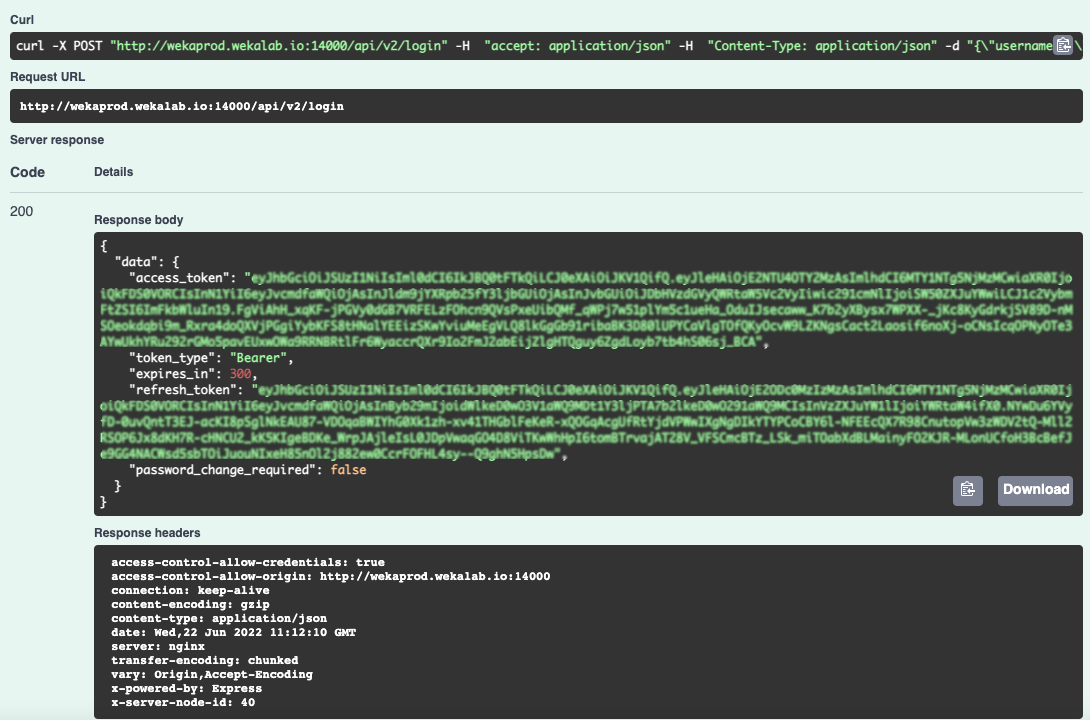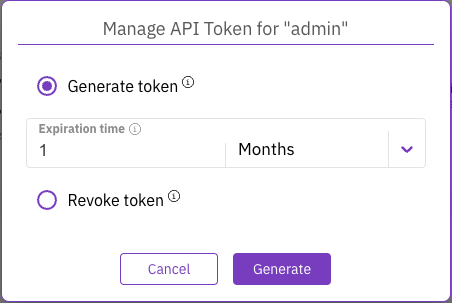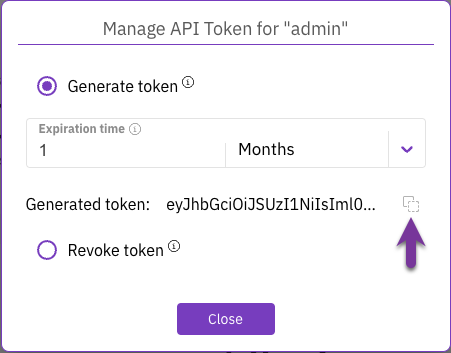Obtain authentication tokens


Manage long-lived tokens for REST API usage
Generate a long-live access token using the GUI



Generate a long-lived access token using the CLI
Last updated